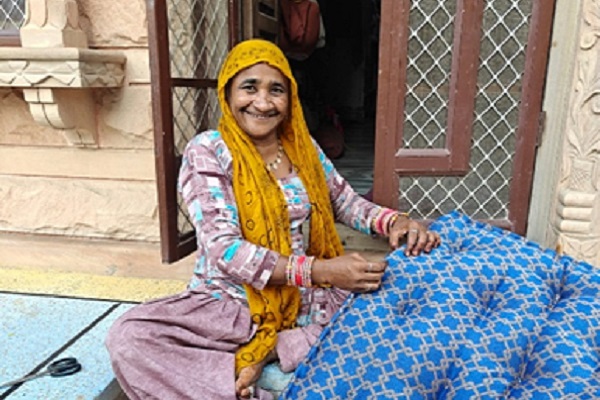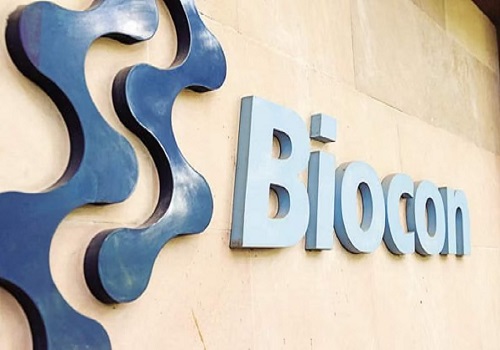Sonalis Consumer Products coming with an IPO to raise Rs 2.83 crore

Sonalis Consumer Products
- Sonalis Consumer Products is coming out with an initial public offering (IPO) of 9,44,000 equity shares of face value of Rs 10 each for cash at a fixed price of Rs 30 per equity share.
- The issue will open for subscription on June 7, 2023 and will close on June 9, 2023.
- The shares will be listed on SME Platform of BSE.
- The share is priced 3.0 times higher to its face value of Rs 10.
- Book running lead manager to the issue is Expert Global Consultants.
- Compliance Officer for the issue is Shivang Shashikant Shah.
Profile of the company
The company is engaged in the manufacturing of nutria-bars and other healthy snacks Items. Its diversified product portfolio enables it to cater to a wide range of taste preferences and consumer segments, including children, youth and adults. Its products in the Nutri-Bars and Laddu (Indian Snacks), are primarily targeted at the youth and Adults while its other products are for all consumer segments. The company has absorbed the business line & distribution network of Appetite Food. Since, Appetite Food has already been in active business for approximately for three years, it provides an ideal platform for the Company to grow / expand its business in the region. It has over the years leveraged its understanding of its target markets and consumer segments, product innovation capabilities, distribution network, strategically located manufacturing facilities and have focused its marketing and promotional activities to strengthen its product brands and establish its brands across India.
It seeks to differentiate ourselves from its competitors through introduction of new products, including launching innovative flavours targeted at addressing diversified consumer tastes, market trends and providing product which are value for money to the consumers. Its diversified product portfolio enables it to cater to a wide range of taste preferences and consumer segments, including adults, young and children. Its products in the granola Bars, Diet Bhel and Healthy Pop-ups are primarily targeted at the youth while its other products are for all consumer segments. Its diversified product portfolio is therefore, relatively less susceptible to shifts in consumer preferences, market trends and risks of operating in a particular product segment.
Proceed is being used for:
- Working capital requirements
- General corporate purposes
- Issue expenses
Industry overview
Fast-moving consumer goods (FMCG) sector is India's fourth-largest sector with household and personal care accounting for 50% of FMCG sales in India. Growing awareness, easier access and changing lifestyles have been the key growth drivers for the sector. The urban segment (accounts for a revenue share of around 55%) is the largest contributor to the overall revenue generated by the FMCG sector in India. However, in the last few years, the FMCG market has grown at a faster pace in rural India compared to urban India. Semi-urban and rural segments are growing at a rapid pace and FMCG products account for 50% of the total rural spending. Favorable demographics and rise in income level will boost the FMCG market. The FMCG market in India is expected to increase at a CAGR of 14.9% to reach $220 billion by 2025, from $110 billion in 2020. The urban segment contributes to about 55% of the revenue share, while the rural segment accounts for 45%. Rise in rural consumption will drive the FMCG market.
The FMCG market in India is expected to increase at a CAGR of 14.9% to reach $220 billion by 2025, from $110 billion in 2020. The Indian FMCG industry grew by 16% in CY21 a 9-year high, despite nationwide lockdowns, supported by consumption-led growth and value expansion from higher product prices, particularly for staples. The rural market registered an increase of 14.6% in the same quarter and metro markets recorded positive growth after two quarters. Final consumption expenditure increased at a CAGR of 5.2% during 2015-20. According to Fitch Solutions, real household spending is projected to increase 9.1% YoY in 2021, after contracting more than 9.3% in 2020 due to economic impact of the pandemic. The FMCG sector's revenue growth will double from 5-6% in FY21 to 10-12% in FY22, according to CRISIL Ratings. Price increases across product categories will offset the impact of rising raw material prices, along with volume growth and resurgence in demand for discretionary items, are driving growth. The FMCG sector grew by 36.9% in the April-June quarter of 2021 despite lockdowns in various parts of the country. Number of households shopping on modern-trade channel grew 29.15% YoY in the September quarter and shopping volume on the channel went up by 19.2% YoY
Rural consumption has increased, led by a combination of increasing income and higher aspiration levels. There is an increased demand for branded products in rural India. On the other hand, with the share of unorganized market in the FMCG sector falling, the organized sector growth is expected to rise with increased level of brand consciousness, augmented by the growth in modern retail. Another major factor propelling the demand for food services in India is the growing youth population, primarily in urban regions. India has a large base of young consumers who form majority of the workforce, and due to time constraints, barely get time for cooking. Online portals are expected to play a key role for companies trying to enter the hinterlands. Internet has contributed in a big way,facilitating a cheaper and more convenient mode to increase a company’s reach. The number of internet users in India is likely to reach 1 billion by 2025. It is estimated that 40% of all FMCG consumption in India will be made online by 2020. The online FMCG market is forecast to reach $45 billion in 2020 from $20 billion in 2017.
Pros and strengths
Wide spread sales and distribution network: Its sales and distribution network allows it to reach a range of consumers and ensures effective penetration of its products and marketing campaigns. Its sales and distribution network is strategically spread across different states of India, and has an especially strong outreach in certain semi urban and rural markets. Its state-of-the-art manufacturing infrastructure, sourcing and stringent quality and food safety procedures.
Diversified product portfolio: It has aligned its pace in tune with market demand; it has periodically diversified its product portfolio, consisting of Granola Bars, Chakli, Laddu, Chivda and Sev based on market feedback. Its diversified product portfolio has effectively enabled it to cater to diverse consumer trends. Further, as per customer convenience and needs, it offers products in different size of packaging. This helps it to build brand recognition and customer loyalty.
Experienced promoter and management team: It considers that the experience of its Promoters, Board of Directors and management team along with their ability to deliver consistent growth will aid its vision to organically and inorganically scale up its business in the coming years. Its Board is led by its Managing Director, Sonali Nilesh Kocharekar, who completed her diploma in Pharmacy from SNDT College, Mumbai., and completed her bachelor’s in Business Administration (BBA) from Pondicherry University. She has an extensive experience of over 12 years and industry knowledge/understanding. She has led the company including introduction of new products by understanding consumer behavior, focusing on branding and undertaking consumer engagement.
Risks and concerns
Highly dependent on few numbers of customers and suppliers: Its top 6 customers contribute to 59.66% of its revenue from operations for the period ended December 31, 2022 and its top 7 suppliers contribute to 73.75% of its purchases for the period ended December 31, 2022. The loss of a significant client or supplier would have a material adverse effect on its financial results. It cannot assure that it can maintain the historical levels of business from these clients or that it will be able to replace these clients in case it lose any of them.
Highly competitive market: The market in which the company is doing business is highly competitive on account of both the organized and unorganized players. Players in this industry generally compete with each other on key attributes. Some of its competitors may have longer industry experience and greater financial, technical and other resources, which may enable them to react faster in changing market scenario and remain competitive. Moreover, the unorganized sector offers their products at highly competitive prices which may not be matched by it and consequently affect its volume of sales and growth prospects. Growing competition may result in a decline in its market share and may affect its margins which may adversely affect its business operations and its financial condition.
Limited number of raw material suppliers: There are a very few suppliers from which raw materials like seeds, nuts, grains can be procured, and they may allocate their resources to service other clients ahead of it. While its consider that it could find additional suppliers to supply these raw materials, any failure of its suppliers to deliver these raw materials in the necessary quantities or to adhere to delivery schedules or specified quality standards and technical specifications would adversely affect its production processes and its ability to deliver orders on time and at the desired level of quality. As a result, it may lose customers which could have a material adverse effect on its business, financial condition and results of operations.
Outlook
The company is engaged in the manufacturing of nutria-bars and other healthy snacks Items. Its diversified product portfolio enables it to cater to a wide range of taste preferences and consumer segments, including children, youth and adults. On the concern side, the loss of a significant client or supplier would have a material adverse effect on its financial results. The market in which the company is doing business is highly competitive on account of both the organized and unorganized players.
The company is coming out with an IPO of 9,44,000 equity shares of Rs 10 each at a fixed price of Rs 30 per share to mobilize Rs 2.83 crore. On performance front, the company reported many fold jumps in its revenue from operations at Rs 93.13 lakh in fiscal 2022 as compared to Rs 5.6 lakh in fiscal 2021. The company’s profit after Tax surged by 105.00%, from Rs 0.40 lakh in fiscal 2021 to Rs 0.82 lakh in fiscal 2022.
Going forward, the company will continue to expand its product portfolio and distribution reach, focus on increasing sales volumes, and strive to provide differentiated offerings to its consumers. It will leverage its extensive experience to solidify its industry position, by creating new products, entering new product categories and building new brands to capitalize on emerging trends. These are functional foods having nutritional values made from healthier ingredients including multiple Seeds, Nuts and Spices. It intends to increase its research and development efforts on the product attributes that are most valued by its consumers, including taste, nutrition, food-safety and convenience. This would allow it to better serve increasing demand from consumers for healthier, tastier and higher quality food products and would enable it to further gain market share in the target segment.




















